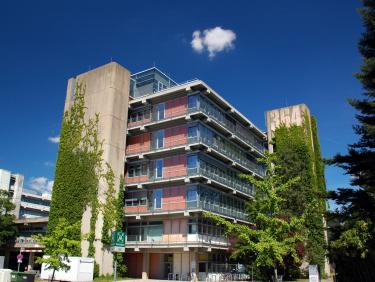
Institute of Pharmacy and Molecular Biotechnology

About us
The IPMB is a research and teaching institute of the Ruprecht-Karls-University Heidelberg, more precisely of the Faculty of Engineering. It comprises various research groups and supervises the Molecular Biotechnology and Pharmacy degree programs. Numerous interdisciplinary projects promote exchange between the departments. The institute facilities are equipped with state-of-the-art technology to enable modern research. The IPMB also cooperates closely with international research institutions.

Research
The IPMB consists of a large number of diverse working groups with a wide variety of research topics.

Study Programs
The IPMB supervises the Pharmacy and Molecular Biotechnology degree courses. Pharmacy is completed with a state examination, while both a Bachelor's and a Master's degree course are available for molecular biotechnology. The practice-oriented training prepares students optimally for their future careers. In addition, numerous research projects offer students the opportunity to gain practical experience and actively contribute to scientific progress.